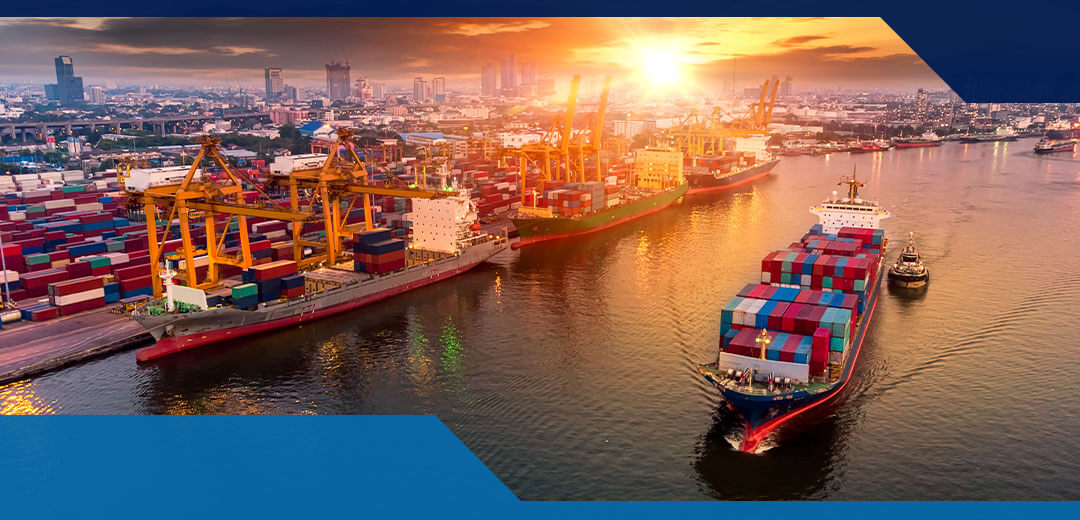When it comes to moving freight in a logistics-heavy region like Seattle, Tacoma, and the Pacific Northwest, choosing the right shipping method can impact your delivery timeline and budget.
For businesses and individuals handling domestic or international shipping, the choice often comes down to Less Than Truckload (LTL) or Full Container Load (FCL). But what do these terms mean? Which one is better for your shipment? And how do you decide?
This guide simplifies LTL vs FCL shipping, compares their pros and cons, and helps you choose based on shipment size, cost, timing, and risk. Plus, learn how TymliErrands, a trusted Seattle–Tacoma logistics partner, supports both options to ensure your goods arrive safely, on time, and within budget.
What Is LTL (Less Than Truckload) Shipping?
LTL (Less-Than-Truckload) shipping involves transporting freight without renting a full truck or container. Instead, your goods share trailer space with other customers’ shipments.
Carriers consolidate freight heading in similar directions, charging only for the space you use, typically measured by pallet or cubic foot. This makes LTL shipping a cost-effective and efficient solution for businesses with smaller shipment volumes.
Commonly used by small to mid-sized businesses, LTL shipping is ideal for e-commerce sellers moving inventory, retail stores needing partial restocks, and startups seeking budget-friendly logistics for frequent, smaller shipments.
What Is FCL (Full Container Load) Shipping?
FCL (Full Container Load) shipping refers to the transportation of goods where a single shipment occupies an entire container or truckload, regardless of whether the container is completely full.
This method is ideal for larger shipments or when strict control over the shipping environment is required, making it a preferred choice for businesses with specific logistical needs.
Common use cases for FCL include wholesale suppliers or manufacturers shipping bulk products, large-scale imports and exports, and transporting fragile or high-value goods that require separation. It’s also suitable for time-sensitive or specialized cargo requiring dedicated transport solutions.
Key Differences Between LTL and FCL

Let’s break down the fundamental differences in how LTL and FCL operate:
| Aspect | LTL Shipping | FCL Shipping |
|---|---|---|
| Container Space | Shared with multiple shipments | Used exclusively for your shipment |
| Cost Structure | Pay for space used (by weight/volume) | Flat rate per container or truckload |
| Speed | Slower due to multiple stops and handling | Faster and more direct delivery |
| Handling Risk | Higher risk from multiple transfers | Minimal handling; fewer transfers |
| Ideal For | Smaller shipments (1–6 pallets) | Large, bulky, or time-sensitive cargo |
| Delivery Flexibility | Less control over scheduling | More control over pickup/drop-off |
When to Choose LTL Shipping

LTL (Less-than-Truckload) shipping is a smart choice for smaller shipments that prioritize cost-efficiency over speed or special handling. Here’s when it makes the most sense:
1. You’re Shipping a Few Pallets
If your shipment includes fewer than 6 pallets or weighs under 10,000 pounds, LTL is the most economical option. You only pay for the space you use, making it perfect for smaller loads.
2. Budget Takes Priority
LTL allows multiple shippers to share truck space and shipping costs. If you can trade faster delivery for more savings, this is an ideal solution—especially for small businesses or startups aiming to scale on a budget.
3. Flexible Delivery Timing
LTL shipments often involve multiple stops along the route. If your delivery isn’t time-sensitive and you’re okay with a day or two of variability, LTL can be an excellent option.
4. Your Shipment Is Durable
Because LTL freight is handled more frequently during transfer and consolidation, it’s best suited for sturdy, non-fragile items that can withstand movement during transit.
By understanding these scenarios, you can determine whether LTL shipping aligns with your needs and ensures a balance between cost and convenience.
When Should You Opt for FCL Shipping?

FCL (Full Container Load) shipping is the ideal choice for high-volume freight, sensitive cargo, or when minimizing handling is a priority. Here’s why it might be the best option for your needs:
Bulk Shipments
If your freight exceeds half a container (approximately 10 or more pallets), FCL often becomes more cost-effective than LTL (Less Than Container Load), even if the container isn’t completely full.
Faster Transit Times
FCL shipments travel directly to their destination, minimizing transit time. If timely delivery is critical and you want to avoid delays caused by shared routes, FCL offers a reliable, efficient solution.
Fragile or High-Value Goods
With fewer transfers and reduced exposure to other cargo, FCL provides better protection for delicate or high-value shipments. It minimizes the risks of damage, theft, or contamination.
Greater Control
From loading to unloading, FCL gives you more control over the entire shipping process. This level of oversight is especially crucial for large-scale or mission-critical deliveries, ensuring your cargo arrives as planned.
When precision, speed, or security matters, FCL shipping is a smart, dependable choice.
Cost Considerations: Is LTL Always the Cheaper Option?
Not always. While LTL (Less Than Truckload) shipping might appear cost-effective at first glance, hidden costs can quickly add up, including:
- Higher risk of damaged goods due to excessive handling
- Additional packaging expenses to safeguard shared cargo
- Unexpected fees, such as lift-gate charges or residential delivery surcharges
When FCL Might Be the Better Choice:
- Your shipment volume reaches a cost-efficient threshold
- You’re transporting valuable or fragile items that need extra care
- Your delivery timeline requires a direct, uninterrupted route
To make the best decision, assess the total logistics cost—not just the shipping rate—when choosing between LTL and FCL.
How TymliErrands Supports LTL and FCL Shipments

Based in the Seattle–Tacoma corridor, TymliErrands provides customized logistics solutions for businesses of all sizes. Whether you need to move one pallet or a full container, Tymli helps you choose the right freight option—and handles the heavy lifting for you.
For LTL Shipments:
- Pickup and consolidation for small loads
- Transparent pricing based on space used
- Local deliveries or terminal drop-offs
- Reliable tracking and communication
For FCL Shipments:
- Full container pickup from Seattle and Tacoma ports
- Delivery to your warehouse, storefront, or facility
- Secure handling of sensitive or oversized freight
- End-to-end project management for peace of mind
As a local errand running service with professional logistics capabilities, Tymli ensures your freight—large or small—gets where it needs to go safely and efficiently.
Common Mistakes to Avoid When Choosing Between LTL and FCL
Even seasoned shippers can miscalculate. Here’s what to avoid:
Underestimating Volume
Trying to squeeze a near-full container into an LTL shipment may cause delays or extra charges.
Ignoring Risk of Damage
Don’t choose LTL for fragile or high-value items without assessing packaging and transfer risks.
Choosing on Price Alone
LTL may be cheaper but slower. FCL may cost more upfront but save time and avoid losses.
Not Working with a Local Expert
Using a national carrier without regional knowledge can lead to missed cut-offs or port delays.
Work with a team like TymliErrands, who understands Seattle–Tacoma logistics and helps you plan for success.
FAQs
What does FTL shipping mean and who typically uses it?
FTL (Full Truckload) shipping means one customer uses the entire truck or container for their goods. This is ideal for businesses shipping freight in large volumes or requiring urgent deliveries. FTL shipments are commonly used in regional deliveries or when dedicated space is needed for fragile or time-sensitive cargo.
How does LCL shipping help with cost savings?
LCL (Less than Container Load) or LTL shipping lets multiple shippers share one container. This shipment method offers cost savings for smaller loads by splitting freight costs with other shippers. It’s commonly used in international shipments when full container load (FCL) options are unnecessary.
Are there differences in shipping times between LCL and FCL?
Yes. FTL/FCL shipping typically offers faster transit because it doesn’t require stops to load or unload other shipments. LCL shipments may take longer due to consolidation, handling, and varying shipment sizes that impact timing.
What tools help manage both LCL and FCL shipments?
Many freight forwarders and logistics operations offer a customer-facing web portal. These platforms show shipment statuses, destination logistics updates, and support for both ocean freight and trucking services.
Conclusion
Ultimately, the decision between LTL and FCL depends on your shipment’s:
- Size and weight
- Sensitivity and risk tolerance
- Timing needs
- Budget
For smaller loads that aren’t time-sensitive, LTL is an affordable and efficient solution. But when you’re moving bulk freight, need faster delivery, or want more control and protection, FCL is the smarter choice.
Not sure which is best for your shipment? Contact TymliErrands—a trusted logistics and errand running service in the Seattle–Tacoma area. From container transport to small-scale delivery, Tymli offers local expertise, insured handling, and a commitment to getting your freight exactly where it needs to be—on time and stress-free.
